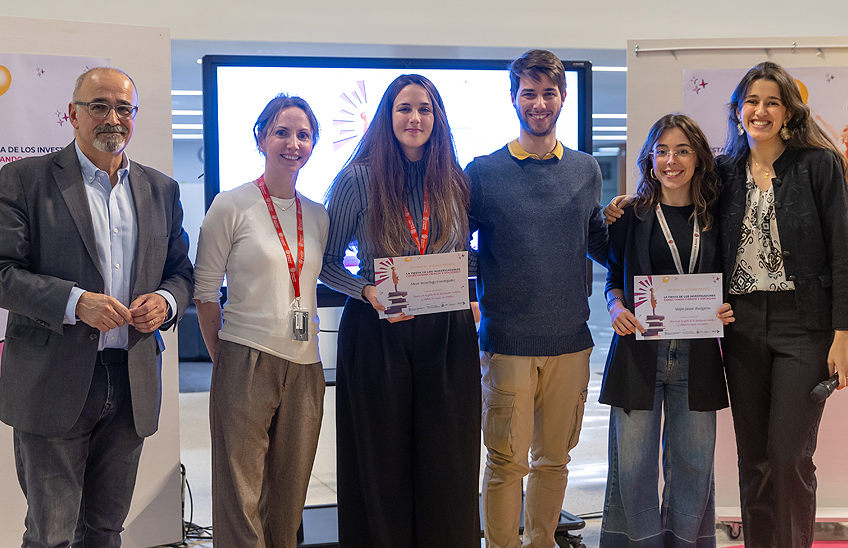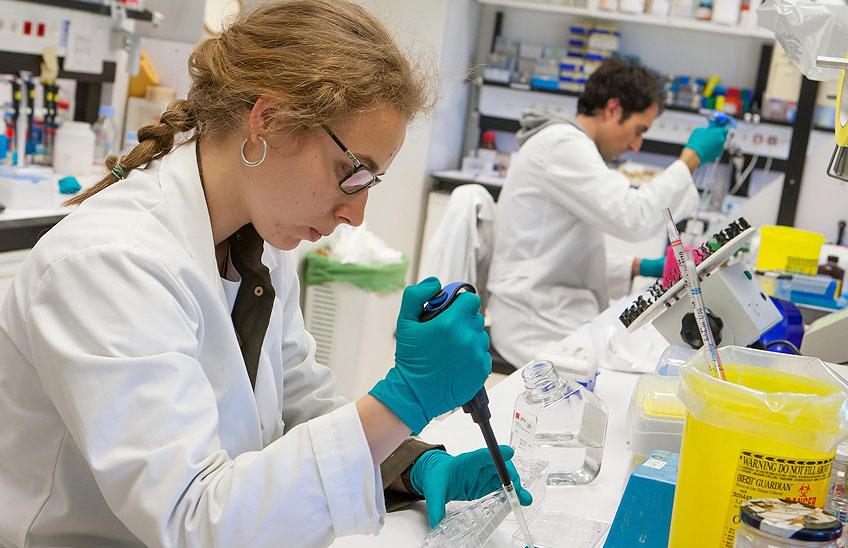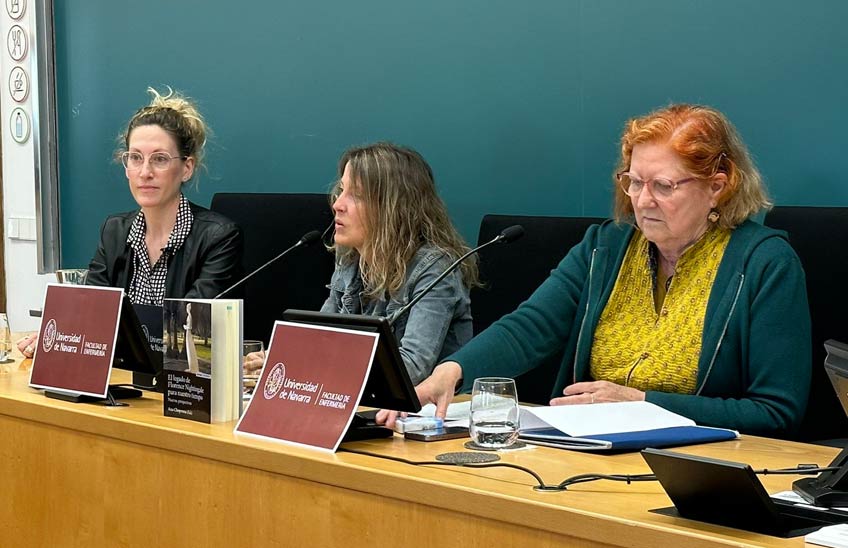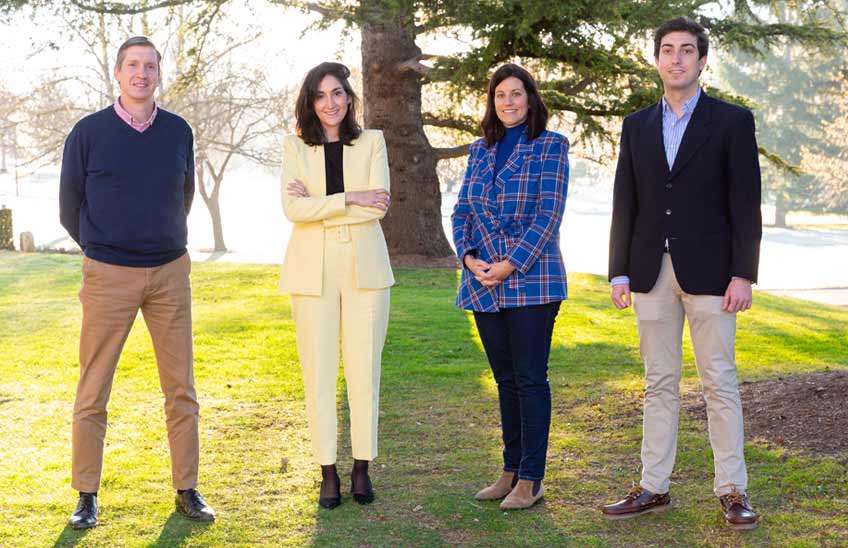"The family is the main axis of care for the elderly in Spain and still depends on the free work of women."
Nuria Esandi, an expert from the University of Navarra, analyzed the challenges and opportunities involved in caring for a family member at status of dependency.
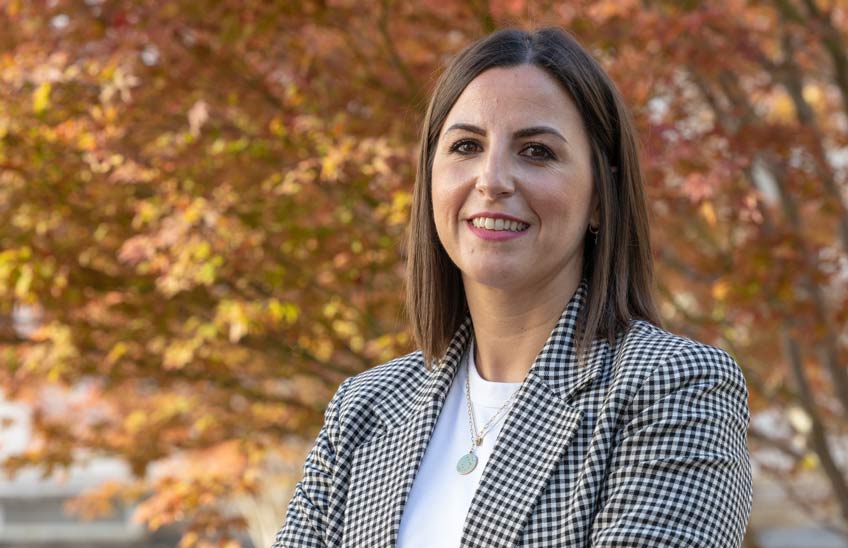
FotoManuel Castells<br>/Nuria Esandi
25 | 10 | 2024
"The family is the main axis of care for the elderly in Spain and it still depends on the free work of women". This is how Nuria Esandi, Vice-Dean of research and postgraduate program of the School of Nursing at the University of Navarra, expressed herself during her lecture 'Caring for family health: a healthy life and a sustainable future for the family caregiver'. During the session, organized by the Chair IDEA on 'New longevities' of the University, she analyzed the reality of caring for the elderly in Spain and the challenges and opportunities for the family caregiver.
According to the National Institute of Statistics, in January 2024 Spain had 9.9 million elderly people, 20% of its population. Although aging does not necessarily imply illness, the expert pointed out that it does entail a greater vulnerability and prevalence of diseases, which increases the probability of dependency. A survey of the Observatorio de la Realidad Social de Navarra has shown that 73% of Navarrese people over 65 years of age would ask their family for financial aid in the event of losing autonomy. At national level, it has been found that 69.8% of dependent people are cared for by their families, without external support.
With these data, it is clear that, in Spain, there is a deeply rooted tradition of family caregiving. Esandi pointed out that, in addition to this structure, there is the gender role: "Those who care are mainly women, 27% of caregivers are daughters". She added that this family and gender role has affected their visibility. "Women assume disproportionately and invisibly the responsibility of caregiving," she lamented.
Impact of care
The expert also warned about the lack of support and services for family caregivers. When designing policies and support services, the family, its needs and, in particular, the family caregiving culture have not been considered. "The financial aid arrives fundamentally when the family is overburdened," she has affirmed.
According to several programs of study, the family caregiver is more likely to experience stress in their physical (exhaustion, cardiovascular reactivity...) and mental health (anxiety or depression), in their family and interpersonal relationships (isolation) and in their economic stability (more expenses and less income due to reduced or abandoned work). The researcher added that when care is shared and open communication is maintained, a more sustainable environment is fostered. However, she emphasized that caregiving also has a positive and rewarding dimension, related to commitment, growth staff and family, attachment and solidarity.
"To implement effective interventions and support policies, a broader visionis needed that takes into account not only the primary caregiver but the entire family dynamic," she said. Among other measures, Esandi has called for healthcare professionals to offer professional care with a more inclusive approach . "Families continually face small moments of suffering and doubt on a daily basis, in order to understand them, it is necessary to pay attention to the everyday with empathy," she said. In this way, she stated that the nurse becomes a facilitator of the physical, emotional and relational well-being of the family.
The Chair IDEA of 'New longevities' is an initiative promoted by the Institute for Culture and Societyresearch center Humanities and Social Sciences of the University, and IDEA, specialized in the promotion and of social and health centers and services, with the to respond to the challenges of demographic aging. business management goal

